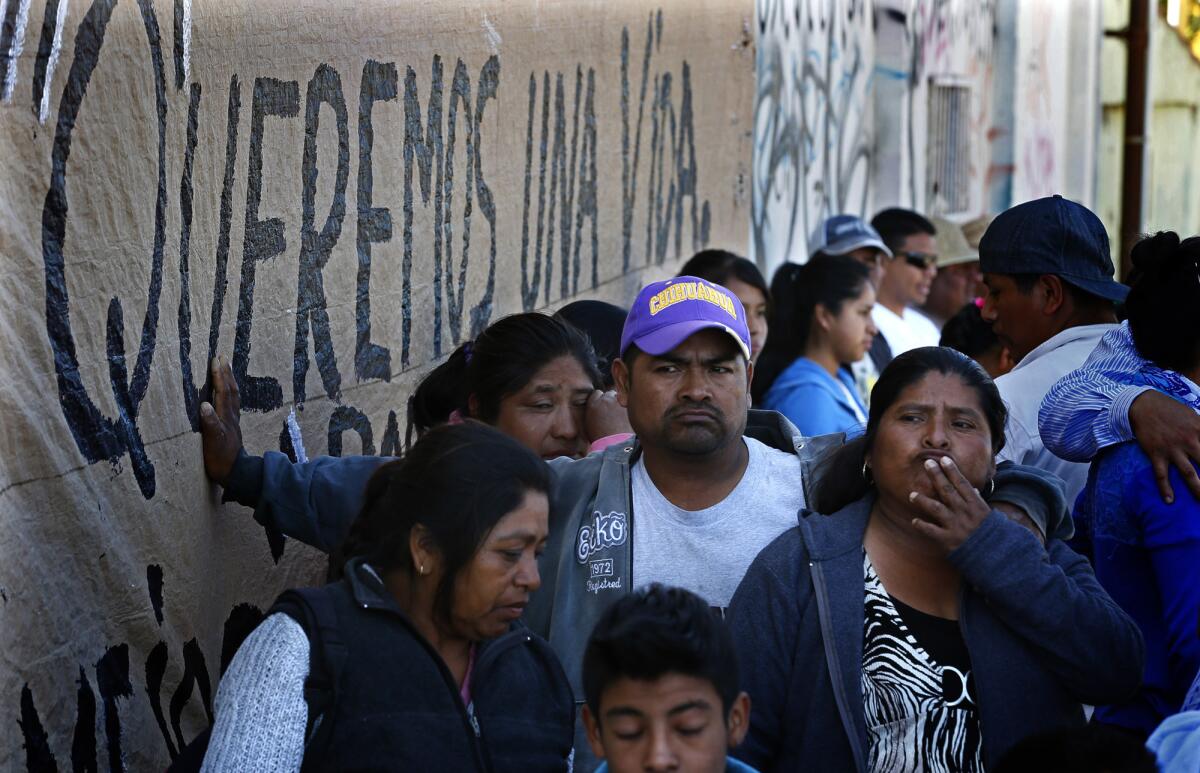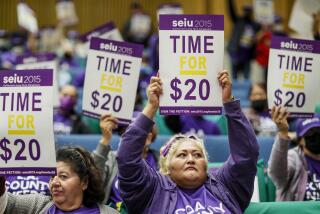Mexico growers offer striking farmworkers in Baja only 6% wage hike

Reporting From San Quintin, Mexico — Labor negotiations in Baja California appeared on the verge of breaking down Wednesday after an association of agribusinesses offered striking farmworkers a raise of 6%, a figure far lower than what laborers are demanding.
The highly anticipated offer was made by an attorney for the Agricultural Council of Baja California, and was met with stunned silence from dozens of farmworkers gathered in a restaurant salon in San Quintin.
“It’s another slap in the face to farmworkers,” said Justino Herrera, a labor leader for the coalition of indigenous groups that represents thousands of workers in the region 200 miles south of San Diego.
Laborers, who have been on strike since last week, now earn about $10 a day and say the wage hasn’t changed in more than a decade. They also want growers to pay government-required benefits as well as overtime.
Labor leaders took turns expressing their disappointment, if not disgust, to association attorney Alberto Munoz and officials from the Baja California government, which has been trying to mediate an agreement to a strike that threatens one of Mexico’s biggest harvests.
They pointed out that one of the region’s smaller growers has already agreed to boost wages to about $20 per day, and they dismissed the proposed salary increase as a minuscule sum that wasn’t enough to feed their families.
Leaders also repeated their claims that growers had systematically denied them government-required benefits such as Social Security.
“A crime is being committed against us … it’s violating federal labor law,” said group leader Fidel Sanchez, standing up from the table and raising his voice. Turning to Munoz, he said, “Let’s be sensible about this.… Let’s be more flexible.”
The room suddenly buzzed with news that a farmworker had been arrested in a nearby town.
“Please, release him,” Bonifacio Martinez, another leader, asked officials seated at the table. They immediately started making phone calls.
The prompt response illustrated the tension gripping the once-sleepy farming region. Protests last week devolved into looting, vandalism and running skirmishes between police and protesters. The arrests of more than 200 people have been sharply criticized, triggering an investigation by Mexico’s human rights commission.
Hoping to avoid another round of violence, the government has deployed about 1,000 police and Mexican army soldiers to the region. The human rights commission has sent observers to the area.
As negotiations continued through the night, Munoz upped the growers’ offer to an 8% wage increase. But labor leaders rejected the offer and countered by proposing a daily wage of about $19.
That left the two sides far apart, and labor leaders said they plan on staying out of the fields for at least another day. Meanwhile, crowds hundreds strong gathered in several pueblos in and around San Quintin awaiting news from the negotiations. There were no reports of unrest.
Twitter: @ricardin24
More to Read
Sign up for Essential California
The most important California stories and recommendations in your inbox every morning.
You may occasionally receive promotional content from the Los Angeles Times.










